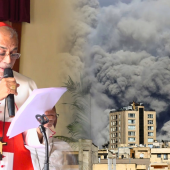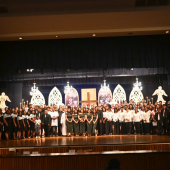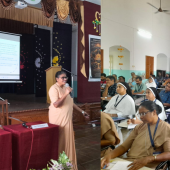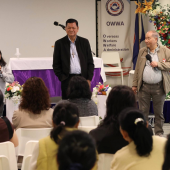Indian activist leads girls on a journey of healing, transformation
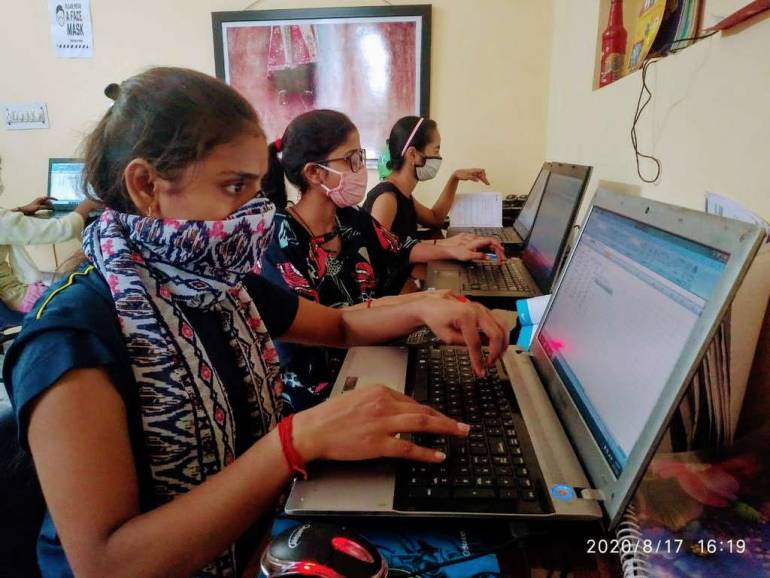
A Delhi-based activist Sonal Kapoor empowers girls who lack opportunities. She nurtures them to become rock stars, leads them on a journey of academic excellence, leadership and healing.
It was yet another day in the life of Delhi-based Sonal Kapoor, a-35-year-old hard-core communication and advertising professional back in 2010.
She had gone as a part of a filmmaking crew to an Ashram (a hermitage or monastic community). A 96-year-old man, who could barely take care of himself, was being asked to redo a scene, again and again, ignoring the fact that he was suffering from Alzheimer’s.
His capacity to hold things and recall withered away with age just like his family members, who hardly cared about his whereabouts or the people on the shoot, who did not seem to care about the pain and discomfort he was being subjected to.
Frustrated, Sonal walks away, not wanting to be a part of a project that was being led with apathy. Interestingly the video was supposed to evoke emotions amongst the viewers. She could not simply digest how the crew can be so harsh with a man, who needed care and empathy.
Clueless about what life has in store for her, she enters a slum and sees a few girls playing in the vicinity. Within a few minutes of engaging with them light-heartedly, a young eight-year-old child, Munni, takes her to her home. Since Sonal had the entire evening by herself, before her filmmaking crew packed up for the day, she readily agreed to see the child’s home.
As she enters Munni’s home, she meets a 37-year-old pregnant woman who has six daughters. A woman, who had hardly any means to meet both ends, asks one of the girls to buy a half litre of full-cream milk for making tea. As she sips the tea, she sees a girl, limping and struggling to balance herself.
Curious, Sonal asks whether she fell somewhere while playing. Without thinking much, the lady says, “Raat ko chaar-panch din ke baad yeh ayi hai. Teen-chaar aadmi ate hai isko le jate hain aur fir wapis chhor jate hain. Chinta na karo madam condom-wondom sab istemal hota hai. Kya karu kamayi ka koi saadhan nhi hai. Abki baar larki hui to maar dungi. Mujhe ab larka chahiye (A few men come and take her to sleep for a few nights. Nothing to worry Madam, they use condoms. What to do, there is no source of income. This time, if a girl is born, I will kill her. I want a boy).”
It was shocking for Sonal to believe that a mother can ask her daughters to sell their bodies to keep the house running. She could not sleep that night. She took a leave for 15 to 20 days and decided to help that one girl. The deeper she got into it, her urge to help more girls, became stronger and stronger.
Within three weeks of a simple feasibility study of that community, she started a rented learning center in the slum to help these girls overcome the trauma that they have been subjected to for years.
Some girls were abused; some had never been to a school and were forced into child labour or were asked to beg at the street lights. Some faced the severe risk of being married as child brides. It took a while to convince their parents.
What started with a few girls took the shape of an organization called, “Protsahan India Foundation,” which has already impacted the lives of close to 81000 girls through its programmes in various ways.
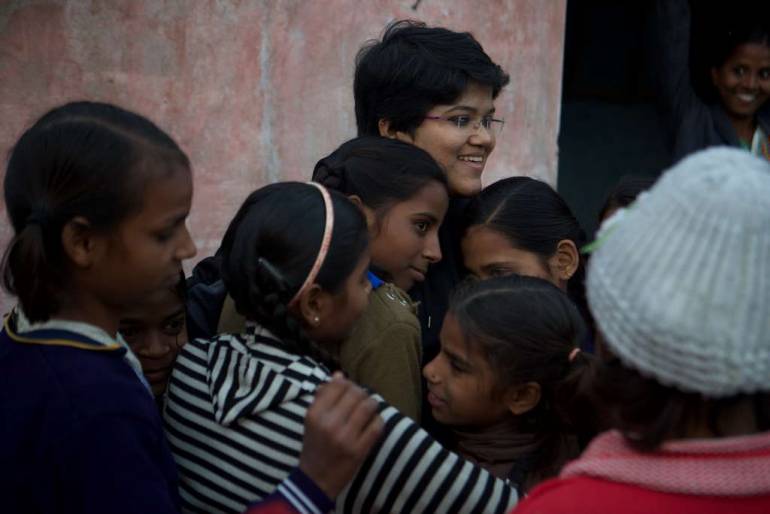
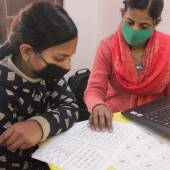
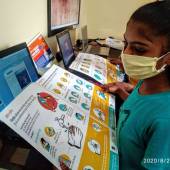
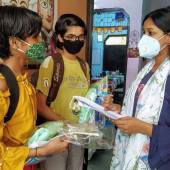
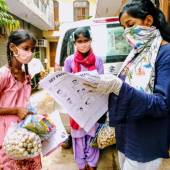
Initially, the focus was to help transition such girls and enroll them in the centre, support them in the healing process through a unique HEART model, where H stands for healing, E for Education, A for Art, R for recovery and T for technology.
While eradicating the trauma of childhood adversity and violence, the process supports the healing of the child survivors through art and their empowerment through creative education and technology interventions.
Gradually, as these girls grew up, Protsahan supported them with scholarships for higher education, tech courses, financial literacy, and education on sexual and reproductive health rights and so on.
As an organization, they too had their lessons on the growth trajectory. While working with several child-rights organisations, she realised that although people are aware of sexual abuse and mental violence, many do not know how to address the issue or handle disclosures and heal the trauma of violence. The easiest way is to sweep it under the carpet and conveniently ignore it.
Since the first session in 2010, a Delhi-based NGO Protsahan has come up with intensive game-based modules and training material to train and build the capacity of social workers, educators and caregivers working across various civil society organisations and government organisations to address these issues at scale.
When asked about scaling up Protsahan, Sonal is very clear. She often says, “I do not have the illusion that Protsahan will solve everything for every child. But we will certainly build a field with resources and tools that will enable the world at large to have knowledge and conversations so that more people on the field working in similar domain areas of childhood violence are supported and healed.”
She intends to have deep engagement with a few thousand girls every year, and lead them on a journey of academic excellence, leadership and healing. She wants them to own their world, do what they wish to do and ensure that they are respected, loved and are financially independent or as she mentions, “that they are nurtured to become rock stars, not beneficiaries!”
“The shine of confidence and healing that my girls have in their eyes after years of deep immersive work that we do at Protsahan keeps me going,” says Sonal. “I do not want fancy numbers on my annual report to impress a donor. I want a changed world for these girls. And the caravan of supporters is building steam… every day!”
While Protsahan is one of the several organisations working towards fulfilling its mission of providing a safe childhood to children at risk, it needs a much deeper and stronger intervention from the government agencies.
It is estimated that more than 100 children are sexually abused every day in India. This is based on the numbers that are reported to the police. The crime is much more complex than just mere numbers. It is a pity that India’s systems are not yet mature to handle such cases with sensitivity and maturity!
The writer, a company secretary and a development sector professional, can be reached at [email protected].
Radio Veritas Asia (RVA), a media platform of the Catholic Church, aims to share Christ. RVA started in 1969 as a continental Catholic radio station to serve Asian countries in their respective local language, thus earning the tag “the Voice of Asian Christianity.” Responding to the emerging context, RVA embraced media platforms to connect with the global Asian audience via its 21 language websites and various social media platforms.









